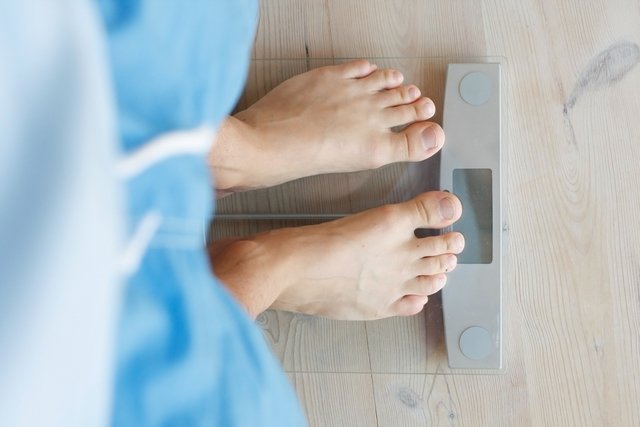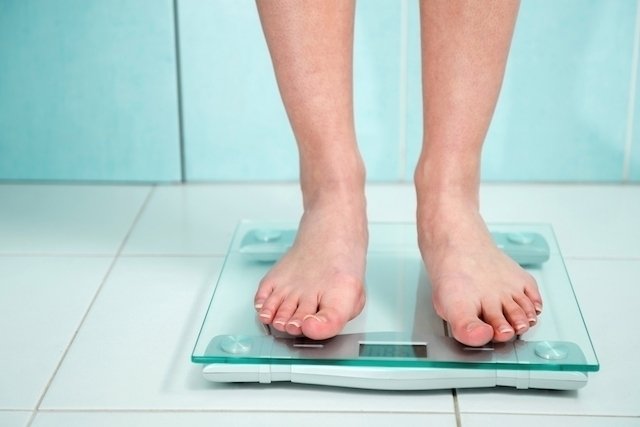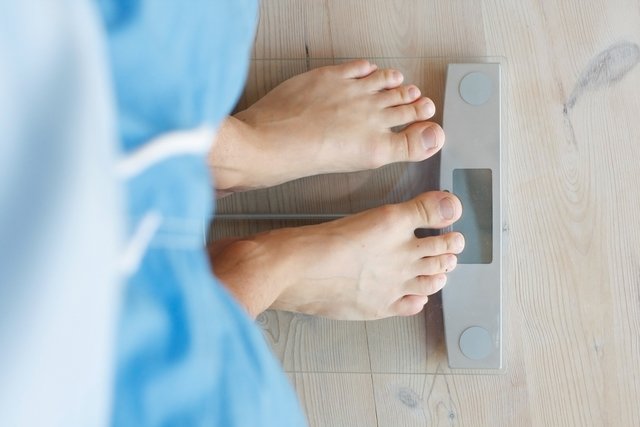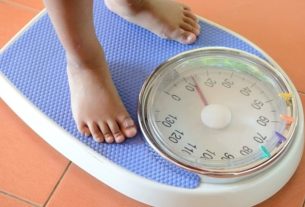The plateau effect is the situation in which weight loss continues despite having adequate nutrition and practicing physical activity regularly. This is because weight loss is not considered a linear process, as it depends on several factors, including physiological ones, which are believed to be related to this effect.
It is normal that when starting a diet and practicing physical activity, one can easily lose several kilos, however, as time passes, the body becomes more adapted to the eating and activity routine, so that consumption energy becomes smaller and no changes in weight are observed.
Although it can be considered frustrating, the plateau effect can be avoided and can be overcome through periodic nutritional consultations, so that the effect of the recommended diet can be assessed and adjustments can be made, and changes in the intensity and stimuli of physical activity. This way, the body does not remain under the same effects and it is possible to avoid the plateau effect.

Why does the plateau effect happen?
At the beginning of the weight loss process, it is normal to observe loss in the first few weeks, this is because there is a breakdown in glycogen reserves to generate energy, in addition to the need for less energy expenditure for the processes of digestion, absorption and metabolism of food, which favors weight loss. However, as the amount of calories is maintained, the body reaches a balance, becoming adapted to the situation, which makes the amount of calories spent daily the same as that consumed, resulting in no weight loss and characterizing the effect plateau.
In addition to the body’s adaptation, the plateau effect can happen when a person follows the same eating or training plan for a long period of time, when they follow a restricted diet for a long time or when they quickly lose a lot of weight, resulting in a decrease in metabolism. However, more studies are needed to truly determine which physiological mechanism is most closely related to the plateau effect.
The plateau effect is more common to occur after 6 months of a calorie-restricted diet, and it is therefore important that the person is monitored by a nutritionist in order to not only avoid the plateau effect, but also nutritional deficiencies.

What to do to get out of the plateau effect
If there is difficulty losing weight, it is important to consult an endocrinologist so that tests can be carried out to check whether the difficulty in losing weight is due to hormonal changes or whether it is a consequence of everyday situations, in which case the effect will be confirmed. plateau.
To overcome the plateau effect, it is important to adopt new habits in your daily life, such as:
1. Change eating habits
Changing eating habits is important to avoid the plateau effect, because when you follow the same diet for a long period of time, the body becomes accustomed to the amount of calories and nutrients that will be consumed daily and so that there are no changes in metabolic processes, adapts, reducing energy expenditure to maintain the proper functioning of the body and slowing down the process of burning fat and weight.
Therefore, by periodically changing your eating habits with the guidance of a nutritionist, it is possible to avoid this physiological adaptation of the body and adopt new weight loss strategies.
2. Change the type and intensity of training
By changing the type and intensity of training, it is possible to encourage the body to expend more energy, avoiding the plateau effect and promoting weight loss and muscle mass gain. In some situations, it may be interesting to be monitored by a physical education professional so that a training plan can be established according to the objective in order to promote different stimuli for the body.
3. Drink water during the day
Water is essential for the proper functioning of the body, that is, for metabolic processes to take place. In the absence or small amount of water, the body starts to store energy to carry out metabolism, interfering with the weight loss process and favoring the plateau effect. Therefore, it is recommended to drink at least 2 liters of water per day, including while exercising.
4. Rest
By resting it is possible to promote muscle regeneration, which allows you to gain muscle mass, which is essential for increasing metabolism and burning fat. Furthermore, sleeping well helps regulate hormones related to hunger, which are ghrelin and leptin, therefore having positive effects on weight loss.
5. Avoid restrictive diets
It is also recommended not to follow restricted diets for a long period without nutritional guidance, as in addition to being able to result in nutrient deficiencies and favoring the plateau effect, it can result in eating disorders, such as binge eating, for example, and the accordion effect, where after weight loss, the person returns to their initial weight or more.
See, in the following video, how restrictive diets can promote the plateau effect:

Sign up for our newsletter and stay up to date with exclusive news
that can transform your routine!
Warning: Undefined array key "title" in /home/storelat/public_html/wp-content/plugins/link-whisper-premium/templates/frontend/related-posts.php on line 12
Warning: Undefined array key "title_tag" in /home/storelat/public_html/wp-content/plugins/link-whisper-premium/templates/frontend/related-posts.php on line 13




